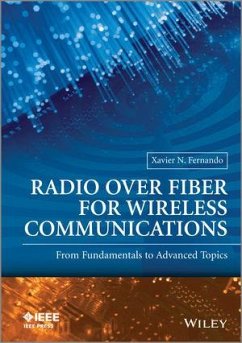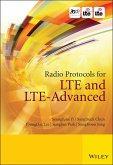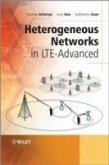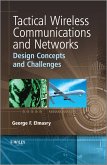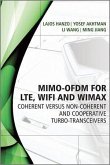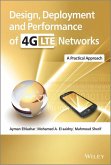A comprehensive evaluation of Fi-Wi, enabling readers to design links using channel estimation and equalization algorithms This book provides a detailed study of radio over fiber (ROF) based wireless communication systems, otherwise called fiber wireless (Fi-Wi) systems. This is an emerging hot topic where the abundant bandwidth of optical fiber is directly combined with the flexibility and mobility of wireless networks to provide broadband connectivity. Its application is increasing because of the growing demand for broadband wireless services. In such a system the transmission of the radio signals over a fiber is an important task. This book provides substantial material on the radio over fiber part of the complete fiber-wireless system, including new research results on the compensation methods. The early chapters provide fundamental knowledge required for a non-expert engineering professional as well as senior/graduate level students to learn this topic from scratch. The latter part of the book covers advanced topics useful for researchers and senior students. Therefore, this book provides a comprehensive understanding of the system for readers who will gain enough knowledge to design Fi-Wi links of their own by learning how to develop Fi-Wi channel estimation and equalization algorithms. This concept is completely novel in current literature and has been patented by the author. Readers are expected to have a basic understanding of fiber optics and wireless communications to easily follow the book and to appreciate the concepts. Basics of the Fi-Wi system and signal processing approaches are clearly explained. It covers a multidisciplinary topic and acts as a bridge between optical and wireless communication domains. In the increasingly demanding telecommunications profession, engineers are expected to have knowledge in both optical and wireless communications and expected design combined/hybrid systems. Hence, the book is written in such a way that both optical and wireless professionals will be able to easily understand and perceive the concepts. * follows a logical process from basic principles through to advanced topics, providing a wide range of interest for researchers, practicing engineers, students, and those required to build such networks * explains detailed system design concepts and the limitations and advantages in each configuration, appealing to design engineers, and largely avoiding system specifics * demonstrates the author's exclusive patent, showing how to develop baseband signal processing algorithms for Fi-Wi systems, which is a key requirement for the successful deployment of Fi-Wi systems * contains tables, numerical examples and case studies, facilitating a good quantitative understanding of the topic
Dieser Download kann aus rechtlichen Gründen nur mit Rechnungsadresse in A, B, BG, CY, CZ, D, DK, EW, E, FIN, F, GR, HR, H, IRL, I, LT, L, LR, M, NL, PL, P, R, S, SLO, SK ausgeliefert werden.

